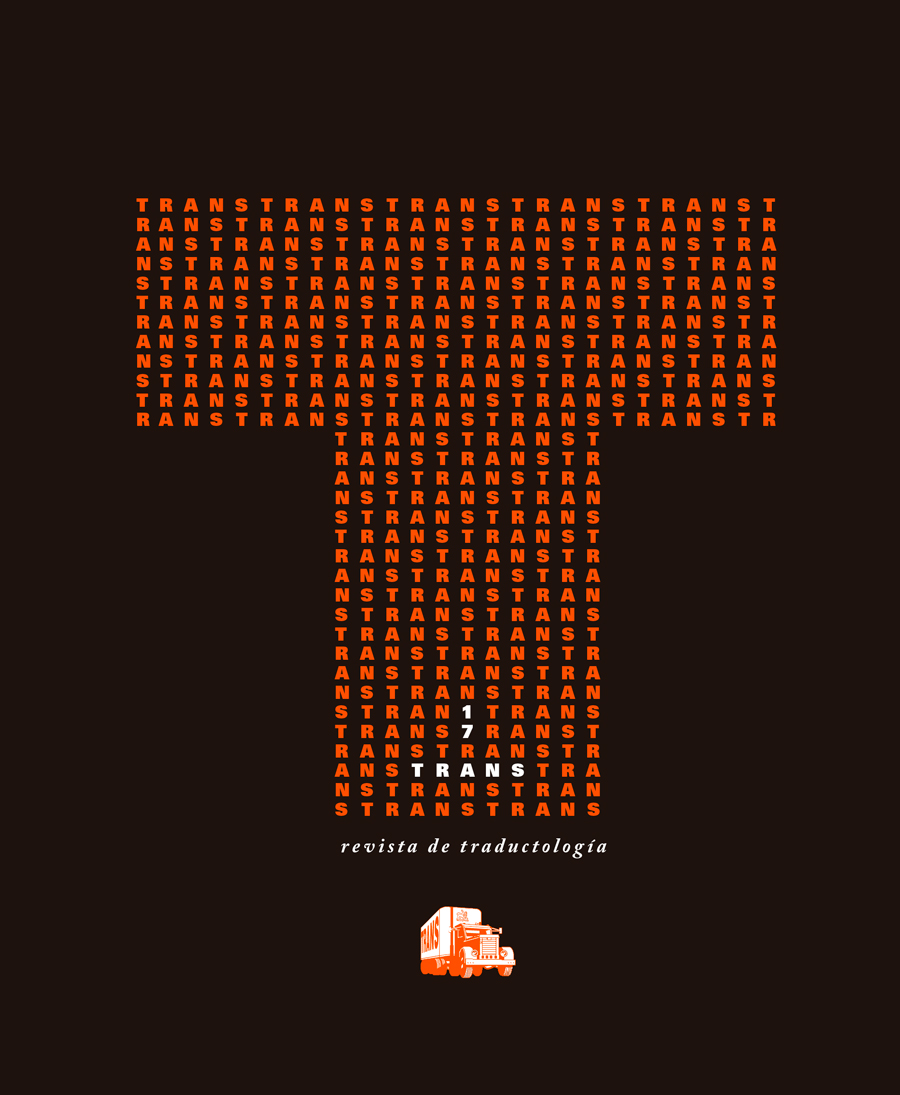Compensation: a translation strategy to mirror spontaneous-sounding conversation when dubbing sitcoms
DOI:
https://doi.org/10.24310/TRANS.2013.v0i17.3228Keywords:
compensation, translation strategy, dubbing, prefabricated orality, dubbese, situation comedy.Abstract
Compensation is a translation strategy used frequently in audiovisual translation in order to overcome the constraints which characterize audiovisual texts (Chaume, 2008: 82). In dubbing, in addition to considering synchronization constraints, translators should take into account that the text they receive has been written to be interpreted as if it had not been written, that is, as if it was spontaneous. In addition, translators should bear in mind the specificities of the register of dubbing, and that some orality markers which are common in domestic productions, are not appropriate in dubbed productions (Baños Piñero and Chaume, 2009). Due to the impossibility of using specific linguistic features which make audiovisual dialogue sound spontaneous, compensation turns out to be a very useful strategy to achieve credible dialogues in dubbed productions. The aim of this article is to reflect on the appropriateness of this strategy to mirror naturally-occurring conversation in dubbing. This will be illustrated with examples from episodes of the TV series Friends dubbed into Spanish. Through these examples, it will be shown how compensation is implemented through the addition of features which are typical of colloquial conversation in Spanish and which are absent in the original version.Downloads
Metrics
Publication Facts
Reviewer profiles N/A
Author statements
Indexed in
-
—
- Academic society
- N/A
- Publisher
- Universidad de Málaga
Downloads
Published
How to Cite
Issue
Section
License
All contents published in TRANS. Revista de Traductología are protected under the Creative Commons Attribution-NonCommercial-ShareAlike 4.0 International (CC BY-NC-SA 4.0) license. All about this license is available in the following link: <http://creativecommons.org/licenses/by-nc-sa/4.0>
Users can copy, use, redistribute, share and exhibit publicly as long as:
- The original source and authorship of the material are cited (Journal, Publisher and URL of the work).
- It is not used for comercial purposes.
- The existence of the license and its especifications are mentioned.
- ShareAlike — If you remix, transform, or build upon the material, you must distribute your contributions under the same license as the original.
There are two sets of authors’ rights: moral and property rights. Moral rights are perpetual prerogatives, unrenounceable, not-transferable, unalienable, imprescriptible and inembargable. According to authors’ rights legislation, TRANS. Revista de Traductología recognizes and respects authors moral rights, as well as the ownership of property rights, which will be transferred to University of Malaga in open access.
The property rights are referred to the benefits that are gained by the use or the dissemination of works. TRANS. Revista de Traductología is published in an open access form and it is exclusively licenced by any means for doing or authorising distribution, dissemination, reproduction, , adaptation, translation or arrangement of works.
Authors are responsable for obtaining the necessary permission to use copyrighted images.













21.png)
